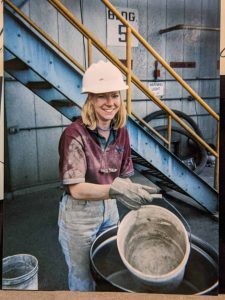Over the course of my career, I have played many roles in the power industry, collaborating on or managing projects of all sizes. Each one is different, that’s something I like about the industry, but common threads have emerged. Here are a few learnings from work life.

- Make a decision. The role of a project manager is to make decisions. It can be very challenging to make a call when information is of course never perfect, but deciding efficiently is key to progress. Gathering all the relevant data and consulting the stakeholders matters, but hesitation is a decision too. Willingness to pick a direction and take action ultimately serves everyone’s interests. Several of these lessons are related to decision-making, and this ability cannot be overstated.
- Details count. Compliance with regulations and due diligence depend on sweating the small stuff. Not only can small issues often cascade into major delays and cost overruns, but missed details can threaten safety and the environment. Saving a few bucks or a few hours today isn’t worth a crisis tomorrow. Environmental program oversight is a good example. My role in this has given my former CEO the peace of mind to sleep at night.
- Messaging matters. Stakeholder perception, whether the internal team, outside consultants, regulators, or the public, can make or break your project. Careful communication helps to get input early, enabling projects to run more smoothly, heading off objections and avoiding other costly delays. Subject matter expertise creates an effective marketing plan. In my work I have been praised for immeasurably raising the company profile in my work on branding, my credibility and technical presence.
- Test in the real world, then decide. As the saying goes, Measure twice, cut once. The uniqueness of industrial and power plant processes is a result of so many factors that there is no better standard than a test on the facility itself or as similar circumstances as feasible. Testing is key to major steps such as new equipment and processes that will be relied on for compliance, safety, and operations. Striking a balance between the desire to test every contingency and to proceed with a decision – how much data is “enough”? – is a skill learned from years of experience.
- Bring the team together. Most projects require many skill sets and points of view. Engineers, financial or environmental professionals, contract managers and sales and marketing experts all bring perspectives that help to solve problems and optimize project execution. Bringing a team together to understand each component well enough to anticipate how it will impact their role, and how they can contribute, is part of gathering all the inputs needed for good decisions. People do not always agree with each other. As co-chair of the mercury control division at the Institute of Clean Air Companies (icac.com), I was highly involved in structuring and writing white papers. However, many competitors participated in each group, and collaboration was not always seamless! When particularly contentious issues arose, my approach was to create a neutral atmosphere where people could hash it out in person. This approach has been successful for situations ranging from large contract negotiations with an engineer-procure-construct (EPC) contractor to resolving the details of permit language with a regulatory agency.
- Persist. Every project I’ve ever worked on has had its complications. Despite intense planning wherein many diverse perspectives are accounted for, unexpected technical and communication issues can crop up; permits are modified; contractors fail to deliver. Addressing these obstacles depends on the ability to persist past the event and revise plans to absorb the new circumstances.

- Change is constant, so stay current. We work in a dynamic environment, with technological and political currents steadily altering the landscape. A strategy that worked last year might have to be updated this year. An expert consultant sometimes brings a fresh perspective informed by recent experience on other projects. When I was a field engineer in the 1990s, I traveled to many diverse power and industrial plant sites. From operations staff to plant management, people were very interested in how things were done at other facilities, and how to apply these learnings to their own. Today, adaptation from facility to facility or industry to industry matters more than ever. People and organizations should always be learning and evolving.
- Be true to your values and priorities. Establish clear lines of communication and speak up when you agree or disagree. Perseverance finds a pathway to success that is within the overarching values and goals of the project. Keep focus on these goals while navigating the process along the way.

